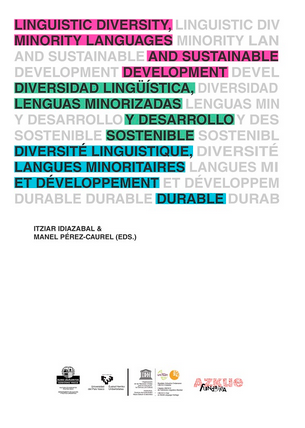Linguistic diversity, minority languages and sustainable development

Ikusi/
Data
2019Egilea
Idiazabal Gorrotxategi, Itziar
Pérez-Caurel, Manel
Laburpena
The UNESCO Chair on World Language Heritage at the University of the Basque Country (UPV/EHU) has carried out different linguistic cooperation activities which have shown that the effort made, particularly by the local community itself, always has a positive effect.
Traditionally, we have had the right to be educated in “vernacular language”. This was the name given at that time to native or indigenous languages, which were generally unofficial languages. For the majority of these languages, this right has not been upheld. This year, 2019, the year of indigenous languages, many linguistic communities are decrying abandonment, apathy and a lack of real commitment to achieving the goals that the so-called bilingual schools are formally pursuing.
It is an honour for us to be able to include contributions from the specialists we have called upon, who have generously responded with their original insights for this publication. This will help it to continue to stimulate development among the most vulnerable groups in society and particularly among communities of speakers of indigenous languages.
The first half of the book contains more general contributions about linguistic diversity and its challenges as it relates to sustainable development. It includes theorising and reflections that, even if they take inspiration from knowledge and analysis of specific situations, provide information and suggestions for action to take which are relevant and applicable to any situation where there is a decline or a threat to linguistic diversity. The second half of the book incorporates contributions that could also be classified as general. However, they relate more specifically to certain languages and places which are under study and proposals specifically designed for those contexts are put forward. We believe its specificity to be its most valuable asset.
 Itzuli
Itzuli